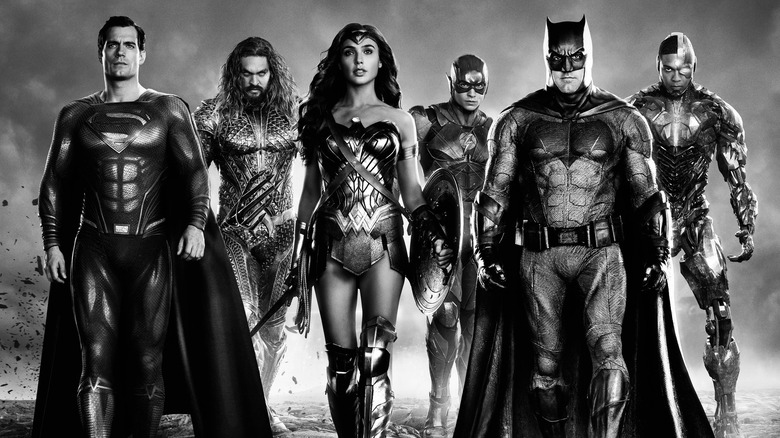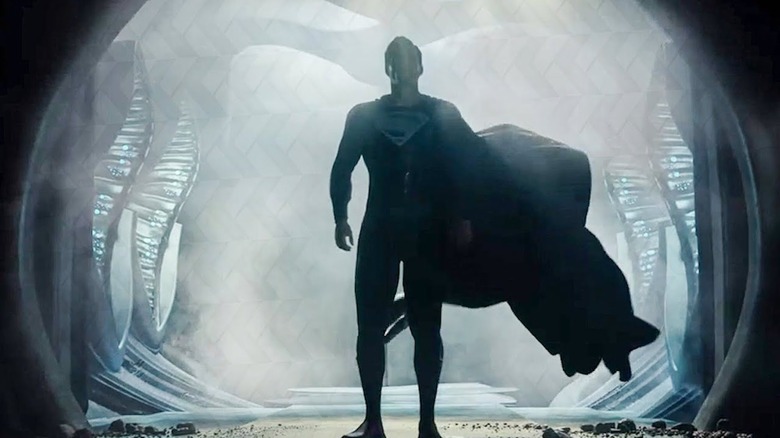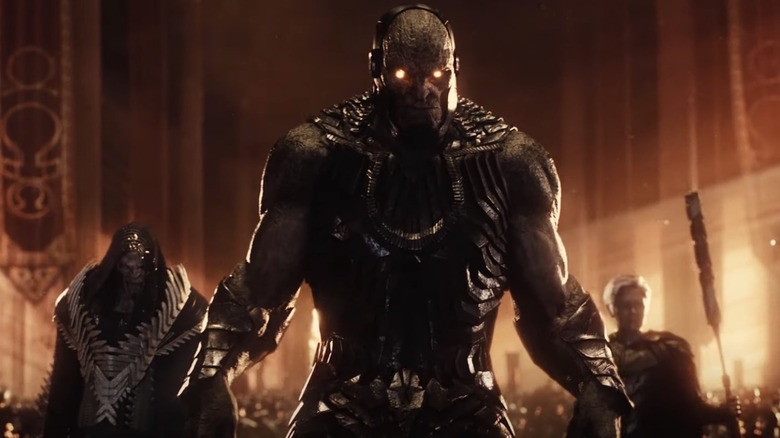'How To Weaponize A Fan Base': The Insidious Implications Behind The Snyder Cut Social Media Blitz
Rolling Stone just dropped a bombshell report that is sure to send ripple effects through all of movie fandom, especially those deeply entrenched in the various comic book fandoms. For the longest time, the #ReleaseTheSnyderCut army has been labeled toxic and has viciously gone after anybody who even doubted the existence of a Zack Snyder cut of "Justice League." I speak from personal experience there and I maintain that I was still right when I said publicly that what people think Snyder has (a full, complete cut ready to release) and what was likely actually there (a rough assembly of his footage) was correct. It took $100 million to get the Snyder Cut from assembled to releasable, which is more than what "Joker" cost to make.
But still, I spent a few days muting randos on Twitter for simply stating that and I count myself lucky. I have colleagues and friends who have seen far more vicious attacks for less.
The whole thing smelled off from the beginning. There has always been gatekeeping and fans demanding ownership going back to the days of Ray Harryhausen, Universal Monsters, and the emergence of sci-fi and fantasy as viable cinema, but what we're seeing today with targeted fan harassment is at a level I've never seen.
What's more is this Rolling Stone piece says it wasn't a fluke, heavily insinuating that Snyder himself used PR teams to build a small army of angry fans, armed with bots and fake social media accounts to target those who he deemed his enemies within Warner Brothers.
A quick recap of the #ReleaseTheSnyderCut mess
If you're somehow unaware of this chaos, the short version is that Zack Snyder's star lost some shine at Warner Bros. after "Batman V Superman" underperformed and was difficult to get finished, and by the time they started seeing what he was doing on "Justice League" they were looking for an out. They took the movie away from him, hired Joss Whedon to first help shape what was already shot and then ultimately reshoot a whole bunch of it, which resulted in a messy hodgepodge of Zack Snyder's dourness and Whedon's goofy humor.
A supposedly fan-led campaign was launched targeting specific Warner Bros. execs and demanding they release Zack Snyder's cut of the movie. That campaign worked well enough that the studio ultimately let Snyder release his cut on HBO Max, but not before spending nearly $100 million in effects, additional shooting, and post-production work. That cut was admittedly much better received than the original, but also wasn't the massive splash everybody assumed it would be for the streamer, being out-performed by movies like "Godzilla vs. Kong" and James Gunn's "The Suicide Squad."
The hashtag-wielding Snyder army wasn't content with the studio spending all the money on making this Snyder Cut real and releasing it, though. They've continued their attacks on suspected "enemies" of Snyder within Warner Bros. and demanded Snyder to be handed the keys to the DCEU kingdom once more.
Now that you're caught up...
The article by Tatiana Siegel (with additional reporting from Adam Rawnsley) reveals that Warner Bros. was so suspicious of the "organic" fan movement that was somehow coordinated with military precision that they hired outside cyber security firms to investigate their legitimacy and found that at least 13% of the #ReleaseTheSnyderCut warriors were bots or fake accounts. Rolling Stone also consulted with social media tracking firms and they came to the same conclusion: not all the Snyder Cut accounts were fake, but there are a whole lot more fake accounts than is standard for this kind of movement. (Daily active spam accounts on Twitter usually track at around 5%, for comparison.)
It's easy to get lost in the weeds with this very dense story, but the most damning accusation made is that Zack Snyder himself was orchestrating this behind the scenes as a way to attack those who stood in his way at the studio and to pressure others to do what he wanted for fear of being in the crosshairs of these weaponized fans.
I've only been annoyed by them, but others have faced blatant racism, misogyny, and even death threats. There were execs who were shown to have their heads chopped off and Snyder bros were tagging these people's children in those images.
Snyder himself pushes back on these accusations in the article, claiming that he doesn't have any influence over these fans. It just so happens they're always mad at the exact people who stood in his way between "Batman V Superman" and the release of the Zack Snyder Cut of "Justice League." These are executives who nobody knew before this movement yet everybody sure seemed to know to target at the same time.
They'll never be satisfied
Again, this is a dense article that goes into way more detail on how these agencies track a bot or duplicate account versus a real flesh and blood pissed-off fan. The craziest thing in this piece for me is that these firms tracked one of the leading domains calling for the Snyder Cut release back to a now-defunct ad company called My AdGency that promised, "cheap, instant Avatar traffic to your website."
The RS piece quotes Warner employees convinced Snyder personally hired this agency to whip up support and then stood back and played dumb when this group went from petitions to legitimate harassment and abuse.
Snyder vehemently denies this framing. Even if he's being honest, the article paints a picture of an upset filmmaker willing to do just about anything to get back at the execs who wronged him, and they back it up with some pretty solid evidence, if not a smoking gun.
Even now, with most of the execs having moved on and Snyder himself now making his movies at Netflix, the fans are still raging, demanding that the studio let David Ayer release his cut of the original "Suicide Squad" and still holding out hope that Snyder himself will come back and "save" the DCEU. Their rhetoric is just as toxic as it was before and still, Snyder doesn't do anything to try to calm it down. That says a lot and validates the Rolling Stone reporting.
The olive branch I'll extend to the #ReleaseTheSnyderCut folks is that standing up for a filmmaker against a restrictive studio is something most of us movie fans can agree is a good fight. But look at how you're fighting and the damage being done.
Don't be supervillains with a moral justification. Be the hero that rises above it.



